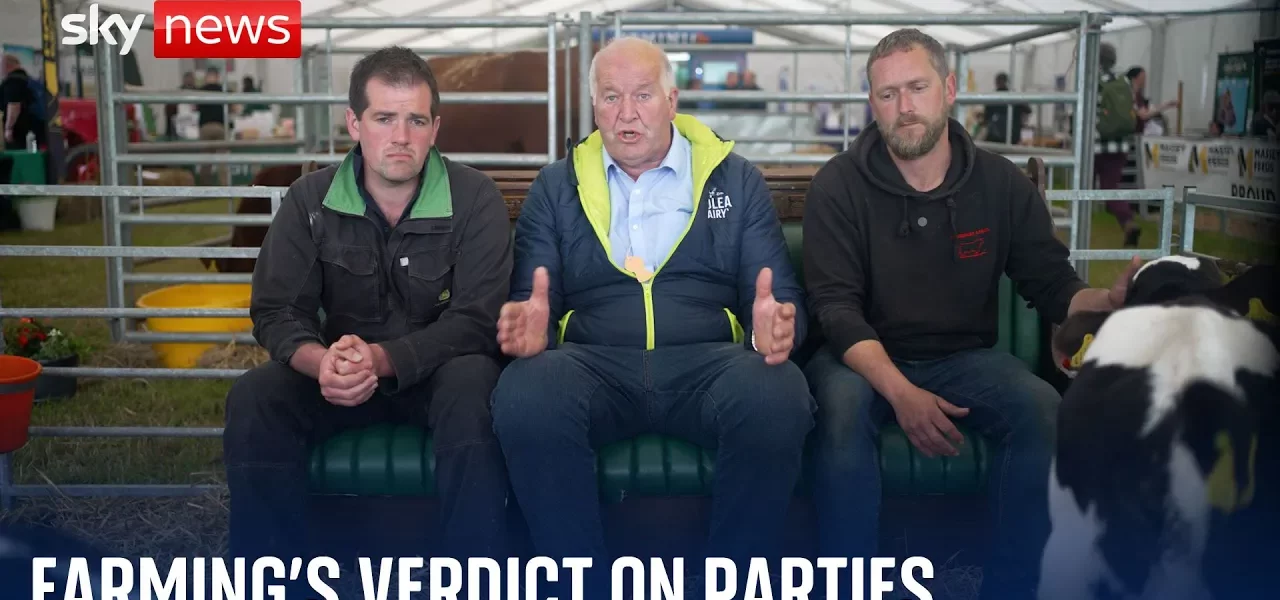The Impact of Government Choices on British Farming

In this article, we explore how political decisions and economic factors are affecting the landscape of British farming. From rising costs of animal feed to the need for sustainable government support, we delve into the complexities that shape the agricultural sector today.
Introduction
The agricultural industry in the United Kingdom is currently navigating a tumultuous environment filled with challenges brought about by both external pressures and internal policies. Over the last two years, British farmers have faced significant hurdles, including severe inflation, fluctuating weather conditions, and the intricacies of government subsidies. These elements have created a precarious situation for farmers, impacting their livelihoods and the availability of food for consumers. This article aims to provide a comprehensive overview of the factors at play in British farming today.
Current Challenges Facing British Farmers
British farmers are facing a myriad of challenges that stem from both economic and environmental factors. The following points highlight the most pressing issues:
- Inflation: The cost of animal feed has surged dramatically. For instance, compound feed prices jumped from approximately £200 per ton to £400 per ton within a year, significantly impacting profit margins.
- Weather Conditions: Unfavorable weather, including a particularly wet spring, has hindered growing and grazing conditions, leading to increased operational costs and decreased milk yields for dairy farmers.
- Government Support: Farmers are calling for assurance regarding the agricultural budget to prevent cuts in government subsidies, which currently account for over 40% of their income.
Government Subsidies and Their Importance
The role of government subsidies in British farming cannot be overstated. These financial aids are crucial for maintaining the viability of farms across the country. Below are some key aspects regarding subsidies:
Understanding Subsidies
There is a common misconception that subsidies are directly handed to farmers for their personal gain. In reality, these funds are intended to lower the cost of food production and ensure that consumers have access to affordable food options.
Impact of Potential Cuts
Without guaranteed subsidies, farmers warn of dire consequences, including:
- Increased food prices in supermarkets.
- Potential reduction in domestic food production, leading to greater reliance on imports.
- Negative effects on food security in the UK, especially amid global uncertainties.
The Call for Enhanced Government Support
Farmers are vocal about their need for increased governmental support to navigate the current landscape. This includes:
Direct Communication with Politicians
Farmers, such as Ray, have directly communicated their needs to political figures, emphasizing the importance of supporting British produce and ensuring that imported food meets UK standards.
Food Security Concerns
With over 50% of food being imported, farmers are urging the government to prioritize food security. They stress the importance of maintaining high standards for imported goods to protect local producers.
Voter Sentiment in Rural Communities
The political landscape in rural areas is shifting, with many farmers expressing uncertainty about their voting choices. Key points include:
Changing Political Affiliations
Traditionally conservative constituencies are seeing a rise in voter indecision. Many farmers who have consistently voted Conservative are now contemplating their choices due to dissatisfaction with current policies.
The Role of the Labor Party
The lack of a clear agricultural budget proposal from some political parties, particularly the Labor Party, has raised concerns among farmers regarding their future support.
Conclusion
The current state of British farming is a complex interplay of economic pressures, government policies, and environmental challenges. Farmers are calling for more substantial government support to ensure the sustainability of the agricultural sector. Without this support, the repercussions could extend beyond farms and into the supermarkets, affecting consumers nationwide. It is crucial for both policymakers and the public to understand the significance of supporting British agriculture. We encourage readers to stay informed and advocate for policies that enhance food security and support local farmers.
“`




